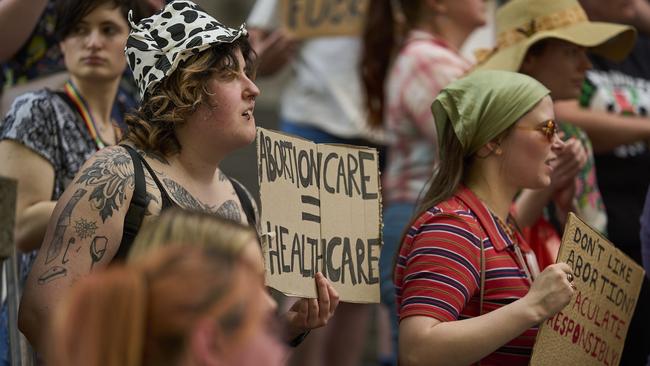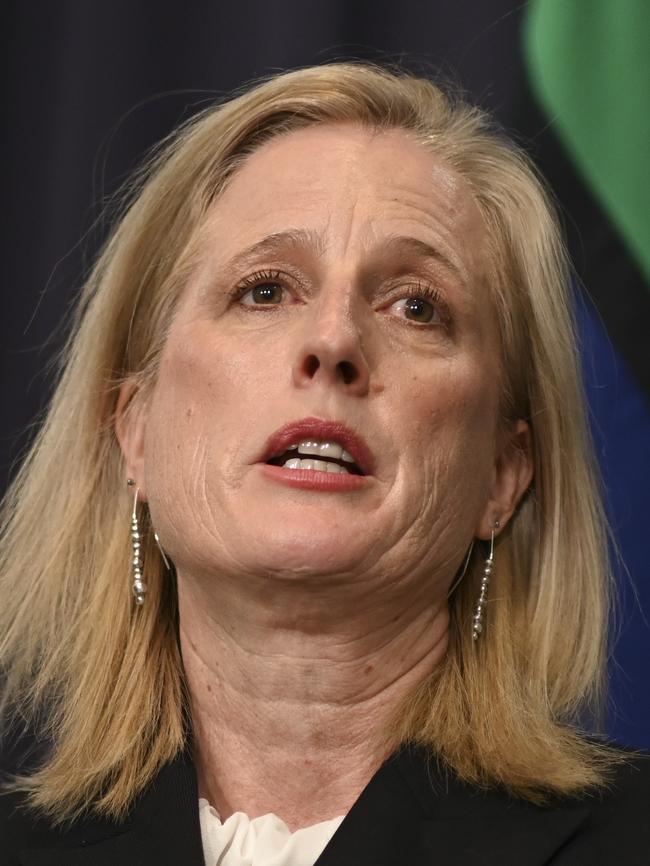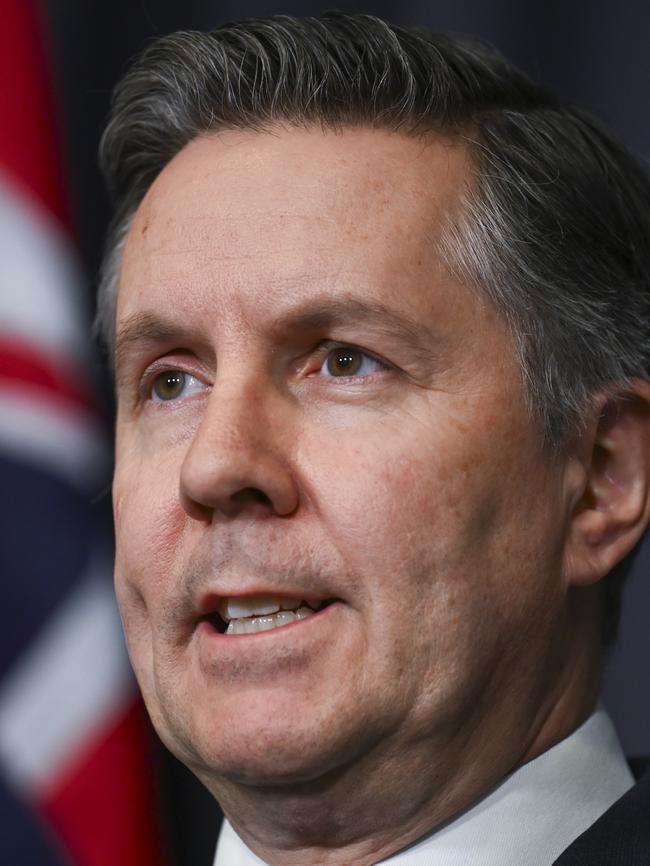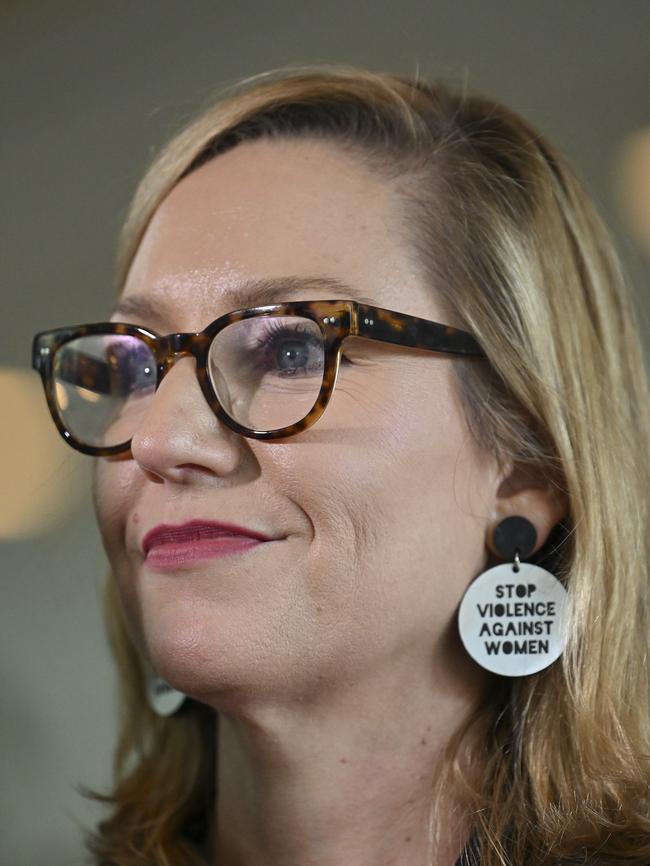Abortion report left unaddressed for 500 days
Labor failed last year to take up calls to expand abortion access in public hospitals as part of its long-awaited response to a Senate report it has had since May 2023.

The Labor Party is showing signs it will run dead on abortion as an election issue, with the Albanese government refusing to respond to a Senate report it received nearly 500 days ago arguing for an expansion of access to termination services in federally funded hospitals.
Despite ministers confirming as early as March last year that the government’s response to the report was being “finalised” and the Greens being told the matter would be dealt with by the end of 2024, Labor appears to have shied away from taking up the issue that featured prominently at the Queensland election in October.
The delay in responding to the report – handed to the government in May 2023 – has prompted “serious concerns” from Labor members, who are describing the matter as “urgent” in the wake of figures in December showing just three of 220 public hospitals in NSW provided surgical terminations.
Pamela Anderson, the chief executive of Emily’s List – a progressive network within Labor helping women in the party get elected – said it was “disappointing” that the government had so far failed to act on the report, which recommended “all public hospitals within Australia be equipped to provide surgical pregnancy terminations, or timely and affordable pathways to other local providers”.
“We do hold serious concerns about the delay,” she said. “We want to see better access, we want to see better funding, we want to see it fully funded; that’s something we’ve been working very closely with the government on.
“They haven’t actually said to us they’re not going to do anything. They haven’t said that they are going to do anything, either.”

Labor MPs including Louise Pratt and Mike Freelander have also spoken up about the significance of the issue, with Senator Pratt telling The Australian in April “I would hope the delay in responding to the committee’s report indicates that they are working on policy initiatives to address issues raised about access”.
While Labor in 2019 took the issue of equitable access to abortions to the election, promising to tie public hospital funding to the provision of terminations and other reproductive healthcare services, Women’s Minister Katy Gallagher declared late last year the matter was one for “state and territory governments”.
“The commonwealth doesn’t run hospitals … state and territory governments … make decisions about what services are funded and provided in hospitals,” she told ABC. “I work with Ged Kearney and Mark Butler in this area … my view is we need to make sure that women are able to access the full suite of health services they need to live a healthy life and that’s what we’re focused on.”
Head of general practice at Monash University and National Women’s Health Advisory Council member Danielle Mazza said there needed to be a “willingness from federal and state” governments to improve access to surgical abortions.
She said while positive steps had been taken in broadly improving access to reproductive care – such as the deregulation of medical abortions, applications by several pharmaceutical companies to get contraceptive products on to the PBS, and funding of a new unit in the Australian Institute of Health and Welfare focused on sexual and reproductive health – more needed to be done.
“People do need choice; it can’t only be medical abortion – surgical abortion needs to be available, and particularly surgical abortion at those later gestations, not only for foetal anomalies but also for complex cases,” she said.
“It needs … a willingness in federal and state (governments) to progress that … we’re doing that for mental health and it can be done for abortion services as well.”


Approached for an update on if and when the government intends to respond to the Senate report, Mr Butler’s office pointed to previous statements made by the Health Minister in mid-December in which he declared Labor was “taking this area of health really seriously”.
“I'm not going to get into a commitment about particular dates,” he said at the time. “We are trying to bring together a broader package … of things that we can do to ensure women get the best possible, affordable, accessible healthcare, which gives them the most choice.”
Mr Butler would not say whether the response to two Senate inquiries into women’s health – one regarding reproductive care, the other the impact of menopause – would be released before the election.
While there has been debate in parliament on access to surgical abortions – with an anti-abortion bill seeking to limit access enjoying the support of 18 conservative senators last year – the government appears to be cautious about making the matter an election issue, despite the tactic having galvanised opposition to the Liberals when used by Queensland Labor at the state election.
It follows Peter Dutton warning last year against Labor “using the issue of abortion at the next election”, which he said would be “the cheapest, most crass political effort in our recent history because abortion laws are not an issue for federal government”.
The Greens, who hope to be in a power-sharing agreement with Labor should the government lose majority at the next election, slammed the failure to respond to the report.
“The Albanese government is nearly 500 days late to respond to 36 recommendations in the reproductive health Senate inquiry’s report, Ending the Postcode Lottery,” Greens women’s spokeswoman Larissa Waters said.
“We hoped to see a response this year but, disappointingly, it appears women in Australia will have to wait. This is not good enough. We are now also waiting on the response to the issues related to perimenopause and menopause report, which was due in mid-December.”
Senator Waters said women in Australia could “not afford to wait any longer” and reiterated that the Greens would “always prioritise women’s health” in a power-sharing arrangement or otherwise.








To join the conversation, please log in. Don't have an account? Register
Join the conversation, you are commenting as Logout